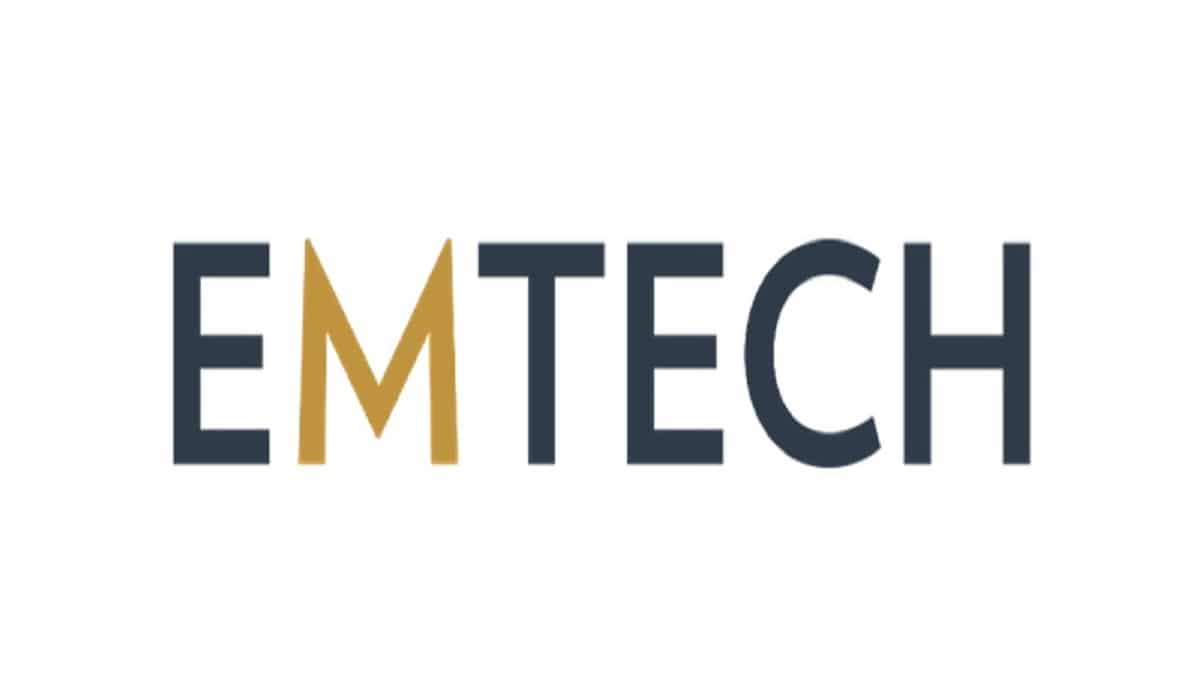Emtech, an African provider of central banking infrastructure, has announced its $4 million seed investment led by Matrix Partners India.
The New York-based company made the announcement on Thursday and intends to continue the advancement of both its regtech solution and this Central Bank Digital Currency (CBDC) stack.
Emtech introduced its Central Bank Digital Currency (CBDC) Innovation kit last month which caters to fintech companies and financial service providers, interested in testing out solutions and business models based on digital currencies developed by central banks.
Among the other investors in the round are BTN.vc, VestedWorld, Equity Alliance, LoftyInc Capital, Level Up Ventures, and Collide Capital. They join Noemis Ventures, Octerra Capital, and 500 Global, who have previously invested in Emtech, on its cap table. The four-year-old has received $10 million in total funding (including a $4 million pre-seed last year and a recent $2 million extension) as of this round.
In a recent interview with TechCrunch, CEO Cardet stressed that Emtech had to open up its seed round, which took a year to complete, in order to follow through on the collaborations with these institutions. “We’re the only company globally working with that many central banks at a time,” Cardet said. The recession and the FTX and Terra Luna drama made funding difficult for our company, like it was for other businesses. Especially now that we’re on a drive to digitise cash infrastructure for them, we have to manage our cash flow and resources, extend our footprint across the area, and deliver for the central banks.
Recall that Emtech’s founder Carmelle Cadet stated in March of last year that the company will roll out its initial CBDC platform this year. The innovator’s centre, which helps fintechs prepare and test requirements for multiple regulators and pre-market technical integration, was once a part of Emtech’s digital regulatory platform. Regulatory agencies can respond to innovations depending on the outcomes of live testing thanks to the regulatory sandbox.
By this point, the four-year-old firm had anticipated working with ten or more central banks. However, it only has six at the moment. For the Central Banks of Ghana, Nigeria, and the Bahamas, it is currently developing solutions in the areas of regtech and CBDC stack. Along with that, we also work with fintechs in other nations to provide critical regulatory and innovation insights.
Read also: EMTECH signs partnership with West African monetary institute
Emtech’s partnership with West African Monetary Institute
In June, Emtech also agreed to collaborate with the West African Monetary Institute. The institute’s long-term goal is to develop a shared central bank as well as a regional common currency. What better method to do the latter than using CBDCs? For retail and wholesale usage, central banks throughout the world are investigating and creating digital versions of their own currencies. As cash usage declines, this prevents leaving digital payments to the private sector. With $10 trillion in available cash, banks’ participation in CBDC increased from 80% to 93% in 2022. In addition, a BIS poll predicts that by the end of the decade, digital currencies will be used by 24 central banks.
Nigeria is one of just a few nations with an active digital retail currency, called the eNaira. Nevertheless, despite the central bank’s efforts to make it acceptable to Nigerians, it has received abysmally little adoption. People’s hatred of the eNaira was made clear earlier this year when the nation experienced a cash shortage as a result of a poorly thought-out government drive to promote a paperless economy. Bloomberg reports that since the eNaira’s launch two years ago, fewer than 0.5% of Nigerians have used it.
The incident demonstrated that the majority of Nigerians chose to wait for hours for cash rather than utilising digital currency. Cadet believes that the significance and advantages of CBDCs generally shouldn’t be overshadowed by the collapse of the eNaira. “Despite the eNaira’s well-publicized introduction, mistakes were made with the planning, technology, and execution. The architecture was most crucially closed to fintechs, she said. “What we’ve got a chance to do is give a fintech-friendly option. According to us, there are a lot of CBDC-related unexplored prospects in the financial sector.
The Innovation kit
She claims that its recently released innovation kit fills that need. Emtech’s regulatory sandbox encourages collaboration between central banks and fintechs on matters pertaining to market entry licensing. The CBDC innovation kit will similarly provide these fintechs access to a digital cash infrastructure that banks may copy.
Emtech’s “Beyond Cash (BYDC)” simulation coin, which makes use of the ERC-20 tokenization standard and the Hedera Hashgraph as a layer 1 protocol, will be used for innovation projects. The CBDC Innovation Kit works as a simulator that is reachable using “bring your app” frameworks and APIs. Fintechs may now use a wallet that acts as a CBDC simulator and pull data from the ledger to test transactions and brand-new business models. Emtech thinks that this approach will bridge the gap between central banking regulation and fintech innovation that has been noticed in the existing system.
“Our stance has remained the same: allowing central banks to establish their CBDC as a secure digital cash infrastructure. Imagine if the $13 trillion or more in paper money that is currently in circulation worldwide were issued digitally, utilised, and effortlessly accounted for. Just think about what finance applications may provide users. We find it to be really intriguing,” the CEO, a former IBM blockchain executive, said in a statement. On its queue of fintech businesses eager to use the platform, Emtech has roughly 200.
According to Aakash Kumar, principal of Matrix Partners India, digital assets and programmable money in the form of regulated CBDCs may accelerate financial inclusion in Africa. Regarding the company’s investment in Emtech, he said: “Emtech’s goal of defining blockchain-powered fintech infrastructure for CBDCs and solutions for fintech regulation is intriguing, and we are delighted to join with them on their journey.




